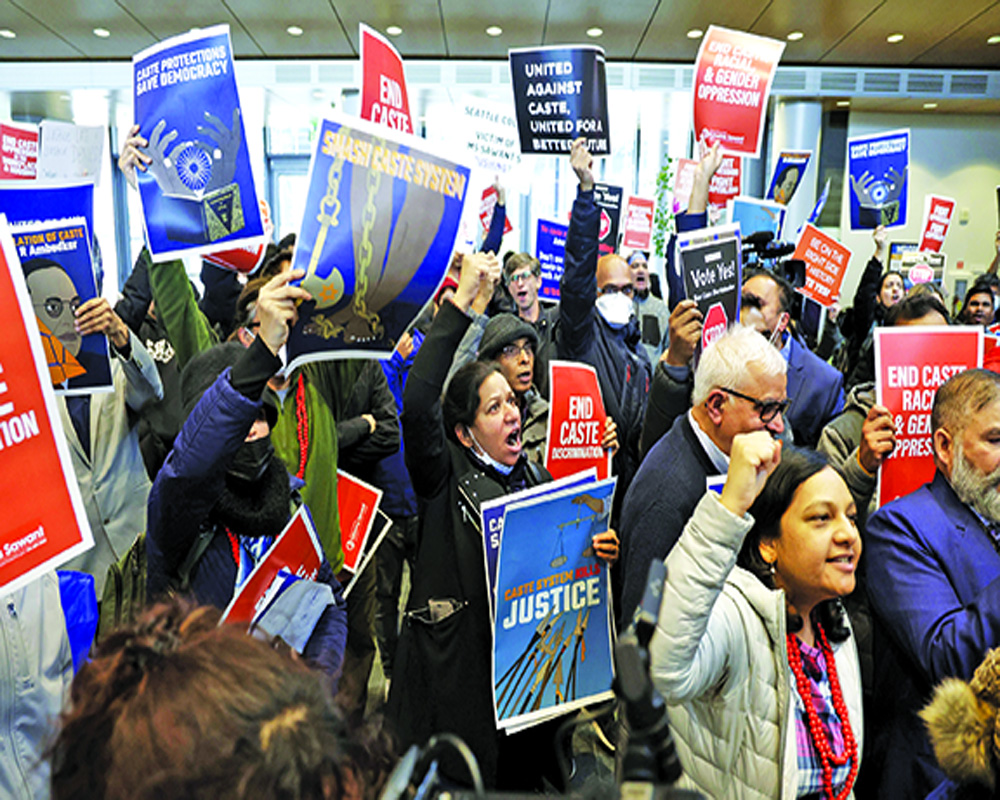Though caste discrimination is anathema to any society, in the US it has different connotations
Seattle in the United States has done in 2023, what India did in 1948. It has banned caste discrimination in the city. India banned caste discrimination and enshrined that policy in the Constitution in 1950. Now Seattle has become the first US city to legally ban caste discrimination. Its local council passed a resolution, moved by an Indian-American politician, to add caste to its non-discrimination policy. This could have far-reaching implications on not only the issue of caste discrimination in the US but also on the discrimination of Indians on racial lines. Caste discrimination has no place in society anywhere in the world, including America. Equality Labs, which lobbied hard to pass the anti-caste discrimination resolution in Seattle has been spearheading a nationwide campaign. Though banning caste discrimination anywhere is welcome but doing so in the US, it has different nuances and could actually harm the Indian community as a whole. The biggest challenge the Indian community faces in the US is not caste or religion discrimination but racial discrimination.
Stratifying a community in this manner gives leverage to the perpetrators of racially motivated people. The Hindu American Foundation, which had campaigned against the resolution, has in fact condemned it, saying singling out South Asians in this manner and the addition of ‘caste' to the non-discrimination policy violates the the US constitution. The City of Seattle has voted to treat South Asians in a manner that no other ethnic or racial community is treated under the guise of non-discrimination. This may well be true as many Indian Americans fear that codifying caste in public policy will further fuel instances of ‘Hinduphobia’ in the US. Over the last three years, ten Hindu temples and five statues, including those of Mahatma Gandhi and Maratha emperor Shivaji, have been vandalised across the US as an intimidation tactic against the Indian community. Indian Americans are the second-largest immigrant group in the US. There are 4.2 million people of Indian origin residing in the United States. As a matter of fact, in passing this resolution, Seattle is now in violation of the US Constitution's guarantees of equal protection and due process that prohibit the state from treating people on account of their national origin, ethnicity, or religion. Implementing a vague, discriminatory and arbitrary category may actually end up harming the Dalits whom it seeks to protect.




























